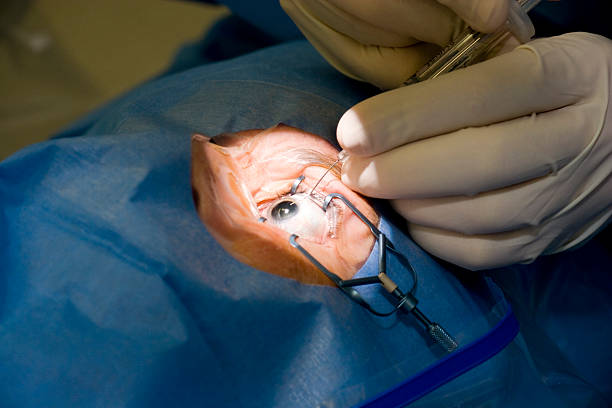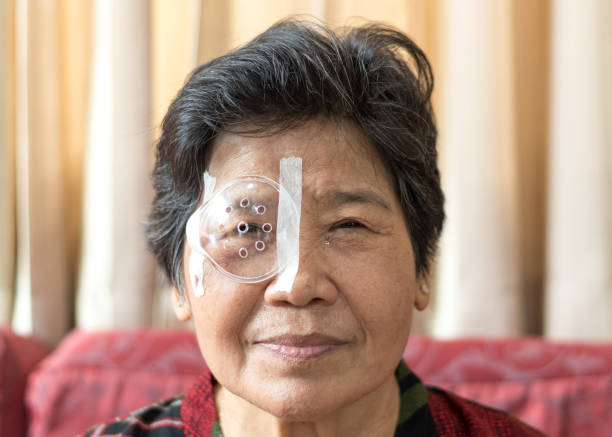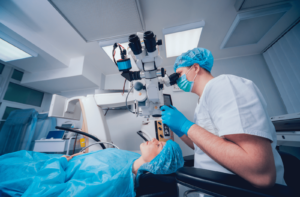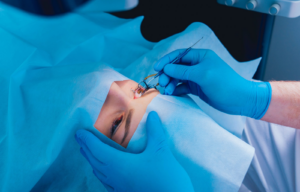
Who is a good Patient for Laser eye surgery, LASIK?
LASIK eye surgery is a standard laser vision correction used to repair vision problems and eliminate or reduce the need for glasses or contact lenses. People with a refractive eye error such as blurry vision, are 21 years or older, and have a prescription that has not altered considerably in the last 12 months are good candidates for the surgery.
How does it function?
According to the Australian Society of Ophthalmologists (ASO), LASIK laser eye treatment resolves visual impairments caused by refractive defects.
Refractive errors arise when light rays cannot travel sufficiently through the cornea and lens to deliver information from the retina to the brain. As a result, the image created on the retina is out of focus, resulting in blurred vision. LASIK laser eye surgery permanently alters the shape of the cornea by removing a piece of the corneal tissue, allowing light rays to focus on the retina.
The LASIK technique is used to treat:
- Nearsightedness (myopia)
- Farsightedness (hyperopia)
- Astigmatism
It should be noted that LASIK may not be able to address presbyopia, a refractive problem caused by aging that requires many people to use reading glasses to correct.

A doctor will check a person’s eye health and measure the cornea, pupils, and refractive errors before they undergo LASIK surgery. Contact lens wearers may need to switch to glasses for many weeks before the doctor can take these measures. This allows the cornea to revert to its original form while reducing measuring errors. You can read more about What you need to know about laser eye surgery, by visiting https://eyemediaarticle.com/what-you-need-to-know-about-laser-eye-surgery-lasik/.
A surgeon will carve a flap through the cornea during the surgery, exposing the stroma or center portion of the cornea. They will then vaporize sections of the stroma with a pulsed laser before restoring the flap.
Surgeons use one of two methods to create the flap in the cornea. Traditional LASIK uses a mechanical blade, whereas all-laser LASIK employs a device known as a laser keratome. According to a 2015 study, there is no statistically significant difference in the outcome of either procedure, and both are safe and successful.
The treatment takes no more than 30 minutes, and patients remain conscious throughout the process. A healthcare expert will numb a person’s eyes and use a speculum to hold their eyelids open before the treatment.

A doctor will place a cover over the eye at the end of the treatment to protect it from irritation and pressure. People may suffer minor discomfort or soreness, as well as burning or itching. While some people may see clearly the next day, vision can be impaired for a few days and may fluctuate over the next few months for others.
Who is a good LASIK candidate?
Good candidates for LASIK surgery, according to the ASO, should:
- Be 18 or older (preferably over 21 years old) – this is to ensure that the cornea has ceased forming by the time the surgery takes place.
- Have a refractive problem that LASIK surgery can fix
- Have reasonable expectations about the treatment and what it can achieve
- Have an eye prescription that has not changed considerably in the last 12 months
- Have thick and healthy corneas, as well as good general eye health
The ASO also specifies who is not a candidate for LASIK eye surgery. These individuals have:
Certain eye health disorders, such as dry eyes, cataracts, thin corneas, glaucoma, and a history of eye infections underlying health conditions that a person may have difficulty managing, such as diabetes
Furthermore, pregnant or lactating women cannot have the LASIK procedure.

Are there any risks or adverse effects?
As with any surgical operation, adverse effects or problems are possible. These effects are usually temporary and may include:
- Eye pain or discomfort
- Blurred, blurry, or foggy vision
- A scratchy sensation in the eye
- Visual disruptions such as glare, halos, or starbursts
- Light sensitivity
- Blood spots on the eyeball
According to the ASO, the risks of long-term or permanent adverse effects are negligible, with 95% of patients having a positive outcome following surgery. According to a 2017 study, using newer lasers has also significantly reduced undesirable side effects.
Potential LASIK eye surgery complications include:
- eye infections
- displacement of the corneal flap
- loss of vision that cannot be corrected with glasses, contact lenses, or more surgery
- persistent visual issues such as double vision or halos
- a severe dry eye condition that can impair eyesight
What is the difference between LASIK and wearing contacts or glasses?
In 2016, Trusted Source conducted a three-year study on the visual satisfaction of persons who had LASIK surgery after wearing contact lenses. They reported improved nighttime driving vision, no rise in dry eye condition, and higher satisfaction during yearly check-ups.
The same study discovered that LASIK eye surgery lowered the rate of frequent side effects in contact lens wearers, such as eye infections, ulcers, and abrasions.
Reading glasses, as opposed to surgery and contact lenses, are significantly less likely to irritate the eye or create adverse effects. They are also a low-cost and effective method of vision correction. However, glasses can be easily damaged or lost and may be unsuitable for some activities. Glasses may cost more to replace and update throughout a lifetime than a single effective LASIK operation.
Locating a Doctor
The Therapeutic Goods Administration offers to advise on choosing the correct specialist for a LASIK surgery, which involves taking into account the following:
- Price: Avoid selecting the lowest option without completing extensive research. Compare multiple doctors and practices, and inquire about the surgeon’s expertise level.
- Advertising: Do not believe deals that appear too good to be true. Reading up on the technique as much as possible will assist consumers in identifying bargains that make exaggerated claims or are too inexpensive to be reliable or safe.
- Expectations: Not everyone will have perfect vision following surgery. Some people may still need to wear glasses or lenses when performing particular duties, such as driving at night or reading small print. Before agreeing to the procedure, people should be aware of this.
In summary, LASIK eye surgery can be an effective and speedy solution to repair specific vision problems, but it is not for everyone. People considering LASIK surgery should be aware of the parameters that qualify them for this procedure. They should also choose their doctor carefully, based on experience rather than price.


